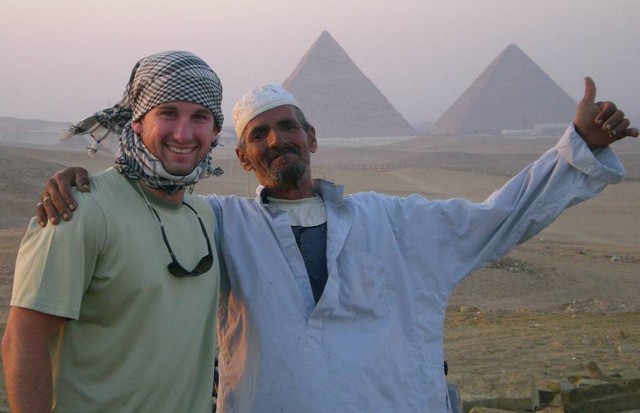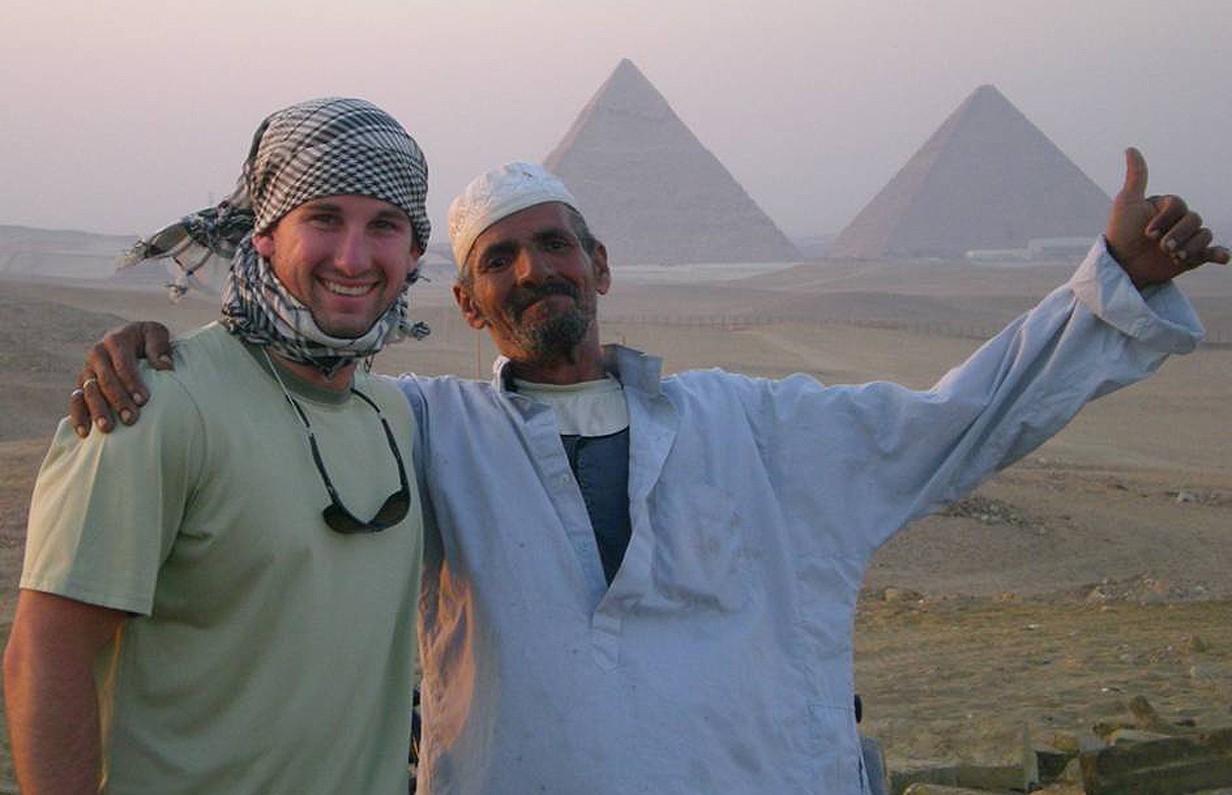
WEST POINT, N.Y. (Feb. 23, 2011) -- West Point cadets went to Egypt to study language but unwittingly became witnesses to history in the making.
Eight members of the Class of 2012, Cadets Brett Schuck, Brendan Mahoney, Brendan Lopez, Patrick O'Shaughnessy, Matthew McGoffin, Kalan Snyder, Jason Steimelm and Bennett Holcomb, along with two U.S. Naval Academy midshipmen, arrived in Egypt Jan. 25, for a semester-long Study Abroad program at the American University in Cairo.
Three of those cadets, Holcomb, Mahoney and Snyder, were in Egypt last July on a Department of Foreign Languages' summer program to study Arabic at the Drayah Language School in Cairo. Their next visit found them landing in the middle of a revolution.
"From the first day we flew into Cairo, despite the unpredictable situation, we all wanted to stay," Snyder said via e-mail. "It was electric. It wasn't the civil war we watched on the news. It was just an exciting time for the Egyptian people and we felt it was a rare privilege to be there, even when most Western reporters and others were afraid to come in."
Snyder said even though they were caught up near the protests by accident on the way back to their hotel, no one wanted them involved.
"The police, especially the undercover men, redirected us from the action and total strangers would whisper to us passing by to avoid this street or that street," he said. "We had no real worries as to our safety. We wandered out during the day to talk to people, get food and look around where things looked remarkably unchanged aside from the Army's presence in the streets."
When the cadets entered the country, they were told to take their orders from the embassy.
"We were monitoring the situation closely," Maj. Mark Whiteman, Department of Foreign Languages Arabic instructor, said. "There was no Internet or cell phone availability, but the cadets did a remarkable job of communicating through land lines."
Whiteman said the cadets' first stop was to the American Embassy to receive briefings while the embassy kept the Department of Foreign Languages updated.
"Doctor Kevin Kilpatrick put the cadets up (for four days awaiting evacuation) because he lives in a secure compound in Cairo," Whiteman said. "Kilpatrick's son Conner is a Class of 2012 cadet and his father routinely hosts cadets who are visiting the country."
"Some of the local men of the neighborhood set up a checkpoint/outpost out front of the Kilpatrick house and guarded the area all night long," Snyder said. "Even in the mobs in downtown Cairo, they saw looters running off with things, and would call them out as thieves. It was not anarchy."
The evacuation of the cadets from Cairo to another Arabic-speaking country went relatively smoothly.
"There was a day's delay at the airport due to the mass evacuations," Whiteman said. "Then they flew to Athens, Greece, and were delayed. Eventually, (a university in the Middle East) agreed to accommodate the cadets. They were a great help in getting the cadets registered and quartered."
Although the Naval Academy does not have a work-study relationship with the university, the two midshipmen were accommodated as well. Whiteman said it was remarkable how helpful the university was during this process.
Before the uprising in Egypt, cadets generally went there, Morocco or Jordan for Arabic studies.
Heather Chadwick, the Study Abroad program director, said about 40 percent of the Study Abroad participants are non-language majors.
"There are criteria," Chadwick said. "The cadets usually are either juniors or seniors and must have three semesters in a language. The cadets are required to study five courses, three in the language of the host country and they must complete the requirement needed during the semester abroad for graduation."
The purpose of the program is to provide cadets a broader perspective and a better understanding of foreign cultures, which is a critical undertaking for Soldiers who represent the United States throughout the world.
"We do this through a 'crawl, walk and run' action," Chadwick said. "Cadets may crawl by spending time in classes or walk with an Advanced Individual Academic Development or run with a semester of work-study in a country."
The Study Abroad program at West Point began in 1998 when cadets traveled to France to study at the Ecole Speciale Militaire de Saint-Cyr.

Social Sharing